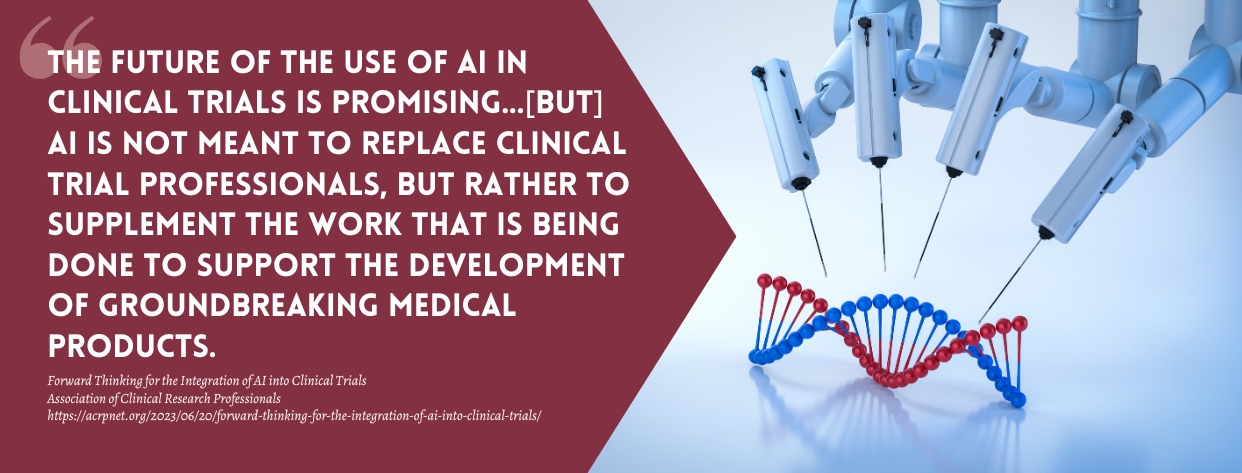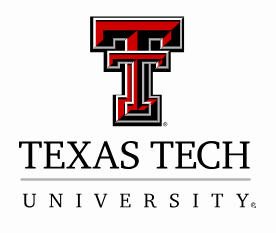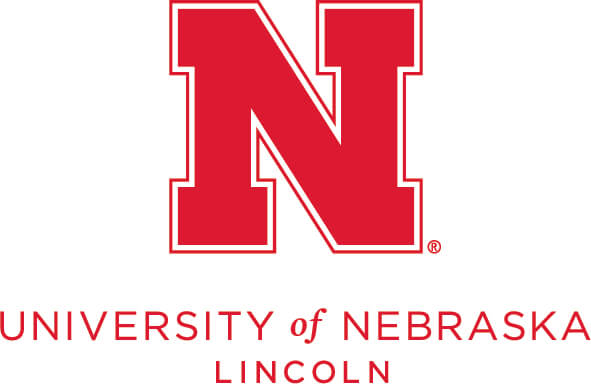Find Your Perfect School
Have you ever come across an ad for a clinical research study? Or perhaps your doctor may have mentioned that you are qualified for a clinical trial. What is clinical research? And do you think this is for you?
Clinical research is the extensive study of the safety and efficiency of the most potential improvements in patient care. Clinical research is different from laboratory research. The former usually involves volunteers to help researchers better understand health and medicine, while the latter does not generally involve people, although this can help researchers discover new ideas that may help individuals.
Quick Summarization
Clinical research is that branch of medical science that establishes the safety and efficiency of medications, therapies, biological agents, medical devices, and vaccines intended for human use. Clinical researchers are constantly working towards their ultimate goals of improving healthcare and advancing medical knowledge.
Clinical research is people-centered, and not laboratory-based. This study covers the whole spectrum of safety and efficiency. Researchers work with medical products before they are prescribed, advised, and administered to the consuming public to determine their safety and efficiency.
Methodology
This list of the best schools offering a clinical research degree program is based on the quality of coursework, the duration of the degree program, tuition fees, and the level of instruction.
- The Clinical Research degree programs are offered as distance education in a fully online or hybrid format that requires minimal campus visits.
- These bachelor’s degree programs offer financial aid opportunities to help education of future clinical research professionals more affordable.
- The online program is provided by a regionally accredited institution and provides on-the-job training opportunities to further hone each student’s clinical research skills.
- Each bachelor’s degree program uses a Learning Management System or a learning platform that is always up-to-date and user-friendly.
- Features relevant core courses and elective courses that address current trends and issues in clinical research. This includes scientific writing, scientific concepts, trial management, drug and device development, data management, medical research, and health sciences, among others.
- The coursework is taught and handled by expert faculty, specifically clinical research administration professionals, clinical research management experts, clinical research associates, and clinical research coordinators.
- Accredited by academic agencies such as:
Read our Methodology to learn about our ranking process.
The 5 Best Online Bachelor’s in Clinical Research
George Washington University
George Washington University, located in downtown Washington, D.C., is perfect for fans of city life and politics. This private research university was chartered in 1821 and is one of six US universities with a congressional charter. With more than 10,000 full-time undergraduates and 14,000 graduate students, GWU is the biggest university in the state.
George Washington University offers more than 75 on-campus programs and over 300 degrees and certificate programs online. One of its top-rated online programs is the BS in Health Sciences – Clinical Research Administration program. This online clinical research studies program will help develop the expertise and skills online students need to contribute to the growing field of clinical research.
- This bachelor of science in clinical research program involves conducting clinical research to ensure the efficiency and safety of new drugs, diagnostics, devices, and treatment regimens.
- In this clinical research degree, students will build upon the fundamentals of the clinical research field—its concepts, principles, and more.
- This online course requires 20 total courses (60 credit hours) to complete. Students can graduate in two years by transferring 60 credit hours from an accredited school and attending online classes full-time. The whole BSHS degree in clinical research requires 120 credit hours of GW and transfer courses.
- This course teaches students about the framework for managing and implementing clinical trials. This includes human subjects protection, phases of drug and device development, trial operations and management, business aspects, monitoring, and scientific/ethical standards.
Students should complete 1,500 of the 3,000 hours of professional experience required for multiple Association of Clinical Research Professionals (ACRP) certifications, plus one year of the two-year full-time work experience prerequisite for the Certified Clinical Research Professional (CCRP) certification through the Society of Clinical Research Associates (SOCRA).
George Washington University is fully accredited by the MSA-CESS.
Texas Tech University
Located in Lubbock, Texas, Texas Tech University is a public research institution of higher education and is the flagship university of the Texas Tech University system. With over 25% of its overall student population identifying as Hispanic, the school is a designated Hispanic-serving institution.
Texas Tech offers 150 degree programs across undergraduate and graduate levels, as well as over 80 online bachelor’s and master’s degree programs through Texas Tech Online. This online degree program offerings are dedicated to supporting distance and online students.
The Texas Tech University Health Sciences Center delivers the hybrid Clinical Laboratory Science Program, offered as a second bachelor’s degree program and a clinical laboratory science certificate program. Both the certificate programs and second-degree options are accredited 12-month programs for students who already have finished a four-year undergraduate degree from an accredited university and who now wish to earn a four-year degree in clinical lab science, or who wish to earn more training so they are eligible to work in the field of medical laboratory science.
- The coursework for both programs is similar. However, the prerequisites for the second-degree bachelor’s programs and the clinical laboratory science post-baccalaureate certificate are different.
- Both the Certificate and Second Degree in Clinical Laboratory Science are accredited by the NAACLS-National Accrediting Agency for Clinical Laboratory Sciences.
- The curriculum for both programs consists of 35 hours of academic education that combines on-site laboratory experience and online class instruction. Classes include:
- Foundations of Clinical Microbiology
- Clinical Immunology
- Clinical Laboratory Practice
- Advanced Microbiology
- Principles of Molecular Diagnostics
- Each program is a combination of instructional materials and online lectures with a six-day laboratory session done on-site at the end of the first two semesters. For either program, students are required to complete a clinical internship in an affiliated laboratory.
Texas Tech University is SACSCOC-accredited.
The University of Nebraska-Lincoln
The University of Nebraska-Lincoln is a public university located in Lincoln, Nebraska, and is the state’s oldest university. This tier 1, flagship institution of the University of Nebraska System offers at least 150 undergraduate programs across different academic areas. Most of its programs are among the country’s best and have been for years, which makes it easier for students to find the right program for them.
The University of Nebraska also offers over 200 online programs across its four highly-respected institutions. The online Bachelor of Science degree in Medical Laboratory Science degree program is a degree advancement option offered through the University of Nebraska Medical Center.
- This online program provides students, clinical laboratory technicians, and medical laboratory technicians with the chance to earn their undergraduate degrees while continuing to work in their respective home communities.
- UNMC students in this online program will learn to analyze tissue, body fluids, and blood samples using cutting-edge technology. They will also know how to maintain, operate, and repair clinical instruments, as well as evaluate possible harmful microorganisms in samples.
The Medical Laboratory Science, BS Degree Advancement Option objectives:
- Allow practicing medical laboratory professionals to earn a BS degree in Medical Laboratory Science.
- Use distance learning technologies; giving students easy access to education and the chance for technicians in the clinical research industry to continue working in their profession while simultaneously completing their degree.
- Provide medical laboratory professionals with the chance to advance personally and professionally, develop critical judgment and independent-thinking skills, and become more competitive and flexible in clinical research positions.
This medical laboratory science degree advancement option includes 35 hours of practical application and theory experiences gained through assignments/exercises, recorded lectures, case studies, and virtual laboratory simulations. The coursework can be completed in small groups or independently with faculty guidance.
UNMC also prides itself on its dedicated faculty advisors who are constantly working with students in choosing a relevant schedule to complete their personalized plan of study. The curriculum in the program is coordinated by faculty members from the UNMC Omaha campus and delivered 100% online or coordinated through various distance learning technologies to students at distant clinical sites. To meet the program requirements for graduation, students must complete all required courses with at least a passing grade of 70%.
Students will also delve deeper into clinical research data management and learn more about laboratory procedures and principles, clinical application and significance, practices and principles of quality assurance, and principles of laboratory supervision and management, among others. This online program will also emphasize patient-centered educational opportunities, with practical experience and theoretical knowledge in:
- Clinical Chemistry
- Hematology
- Immunohematology
- Microbiology
- Molecular Diagnostic and Management
- Immunology
The University of Nebraska has one of the most affordable tuition rates for online programs.
The school is HLC-approved.
Campbell University
Formerly called Campbell College, Campbell University is a private Christian institution based out of Buies Creek, North Carolina. This liberal arts school of higher education is home to over 150 majors and minors at the undergraduate, graduate, and professional levels, all designed to prepare students to make a difference in others’ lives through service, work, and leadership.
Campbell University also offers more than 20 undergraduate online degrees, 8 associate degrees, 2 online master’s programs, and one graduate certificate program through its Adult and Online Education. One of its most in-demand online undergraduate programs is the Bachelor of Science in Clinical Research degree, one of the only two undergraduate clinical research degree programs in the whole of North Carolina.
- In this program, students will learn about the regulatory affairs governing clinical trials and data management, as well as how to monitor and manage clinical research.
- Aside from learning communication skills and responsible conduct needed in the industry, students will also study disease mechanisms and how these impact our bodies. They will also focus more on how diseases are spread and how to identify the populations at risk.
This Adult and Online Education bachelor’s program emphasizes developing any health-related professional– a health program director, a public health official, a clinical trial manager, or a health science expert, to build their skills on how to conduct clinical research plus the knowledge on all areas related to clinical research.
This includes the basics of physiology and anatomy, scientific writing, scientific research, product development, and clinical trials. Additionally, program learning outcomes concentrate on:
- Scientific Concepts and Research Design
- Development and Regulation of Medicines
- Ethical and Participant Safety Considerations
- Clinical Trials Operations
- Data Management and Informatics
- Study and Site Management
- Communication and Teamwork
- Leadership and Professionalism
This program requires 124 credit hours to complete. All the courses are designed in eight-week accelerated terms to allow more flexibility for adult learners. Students can learn from award-winning instructors and faculty who have actively worked in the clinical research field.
Campbell University is a SACSCOC-accredited.
Kent State University
Kent State University is in Kent, Ohio. It has seven regional campuses across Northern Ohio: Ashtabula, East Liverpool, Burton, Jackson Township, Salem, Warren, and New Philadelphia. It also has international and regional facilities in Florence, Italy; Twinsburg, Independence, and Cleveland in Ohio, and New York City.
Kent State has over 300 academic programs at the undergraduate and graduate levels. It also offers more than 80 degree and certificate programs online. Its online Bachelor of Science in Public Health in Clinical Trials Research program prepares students to work as Clinical Trials Managers or Clinical Research Associates and work in their chosen clinical research organization.
- This concentration is perfect for those who are interested in health research studies and epidemiology.
- Students will have plenty of room for advancement considering that the clinical research field is continuously growing.
All the required classes for this clinical research concentration are available online. The core classes include:
- Clinical Trials Management
- Clinical Epidemiology Basics
- Scientific Writing for Clinical Research
- Regulatory Affairs in Clinical Research
- Capstone Course/Internship in Clinical Research
- Pharmacoepidemiology
Students need to complete 120 credit hours to graduate. This can be completed in 2-4 years, based on the academic credits of each student.
Kent State University is approved by the HLC.
Types of Clinical Research
There are two general types of clinical research: observational studies and clinical trials:
Observational studies are those studies that aim to recognize and assess patterns in biological samples like blood or tissue provided by research participants, or in medical data. Clinical trials, on the other hand, also called interventional studies, test the efficiency and safety of medical interventions like procedures and tools, or medications, in living people.
Clinical research studies are in constant need of people of every gender, age, race, health status, cultural background, and ethnicity to join. This increases the chances that clinicians and scientists will develop procedures and treatments that are safe and will work very well for all people. Volunteers are meticulously screened to guarantee that they all meet all the study requirements before they start.
Reasons Why Clinical Research is a Wise Career Path
Clinical research plays a crucial role in today’s healthcare industry. It is also a growing field, with so many career opportunities for people with the qualifications and necessary skills. A degree in clinical research provides students with the extensive training they need for clinical research careers in pharmaceutical companies. It also opens up rewarding and fulfilling career opportunities in organizations committed to helping people improve their quality of life.
But is a clinical research degree a good career path? Here are the top three reasons why earning a degree in clinical research can benefit your career.
There is a constant demand for clinical research professionals.
Because of the rapid demand for clinical research professionals, those who hold a degree in the field are well-positioned to pursue stable and rewarding career paths. Earning a degree in clinical research is a perfect way to show your expertise in the field and boost your chances of landing a job in the field.
There are various advancement opportunities after clinical research training.
Clinical research offers a lot of career opportunities for people who are interested in furthering their careers. With the relevant experience and training, you can easily move up to more senior roles, such as:
- Quality Assurance Specialist
- Clinical Research and Drug Development Specialist
- Clinical Research Project Manager
With an advanced degree in clinical research, you are a step behind in advancing your career in the field. Most of the time, employers prefer or require candidates who hold a degree in clinical research as this shows that they have the skills and knowledge of industry regulations to succeed in the role.
There is plenty of learning opportunities and professional development.
The field of clinical research is very dynamic and is constantly evolving, with new technologies, regulations, and treatments always emerging. With that, people who work in the clinical research field should commit themselves to lifelong professional development and learning.
Earning a clinical research degree is a perfect way to boost your skills and knowledge in this field. During the program, you will gain extensive training on different topics like data management, clinical trial design, and regulatory compliance.
Career Paths in Clinical Research
The continuous demand for clinical research professionals has substantially increased the number of career opportunities in the field. Over the past years, the number of jobs in the clinical research field has multiplied, and this remains the discipline with the most available career opportunities today. Here are some of the common career paths in clinical research.
- Clinical Trials Managers/ Administrators
- Clinical Research Associate
- Clinical Project Manager
- Pharmacovigilance/Drug Safety Officer
- Study Start-Up Associate
- Clinical Research Nurse
- Clinical Research Scientist
- Clinical Investigator
- Patient Recruitment Specialist
- Biostatistician
Frequently Asked Questions
What are the types of Clinical Research degrees?
Depending on your professional goals and academic status, you may choose from any of the following types of degrees in Clinical Research:
- A bachelor’s degree: This will provide you with the basics of clinical research and qualify you to enter the field in an entry-level position.
- A master’s degree: This will build on your knowledge in clinical research, along with the relevant skill set and education. You will have additional job opportunities because of your advanced degree.
- A doctoral degree: This is the highest level of education you can earn in the field of clinical research. After completing, you can teach clinical research at a university or college level, and even conduct advanced research in the industry.
How long does it take to complete a bachelor’s degree in Clinical Research?
A bachelor’s degree in this discipline usually requires four years (8 semesters) to complete. You can shorten this duration by enrolling in online or accelerated programs and earning your credentials faster.
Are there certifications that complement a degree in Clinical Research?
On top of the clinical research degree, students can also earn a suitable certification to help boost their credibility in the area. Some of the relevant certifications for clinical research are the following:
- Certified Clinical Research Professional certification issued by the Society of Clinical Research Associates
- ACRP Certified Professional certification from the Association of Clinical Research Professionals
- Certified Clinical Research Coordinator (CCRC) certification issued by the Association of Clinical Research Professionals
- Professional Researcher Certification (PRC) from the Insights Association
- Clinical Trial Investigator issued by the Association of Clinical Research Professionals
Key Points to Ponder
- Earning a degree in Clinical Research will give you a lot of opportunities to work in different roles and positions in the field.
- Clinical Research usually involves an extensive study of the safety and efficacy of drugs and other biomedical devices in humans.
- As a Clinical Research professional, not only will you work towards saving lives, but you will also help improve the quality of life for people.
Additional Information:






